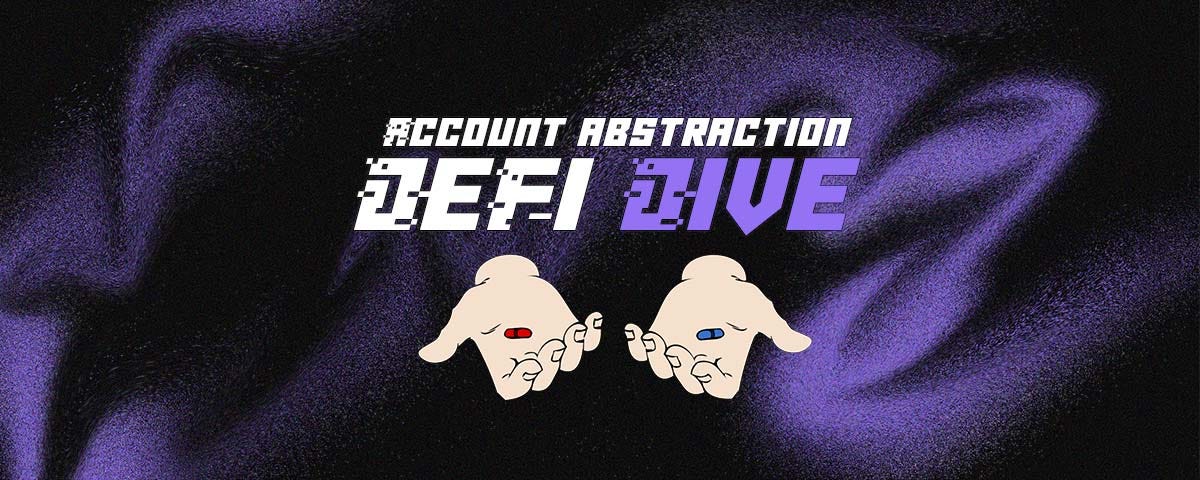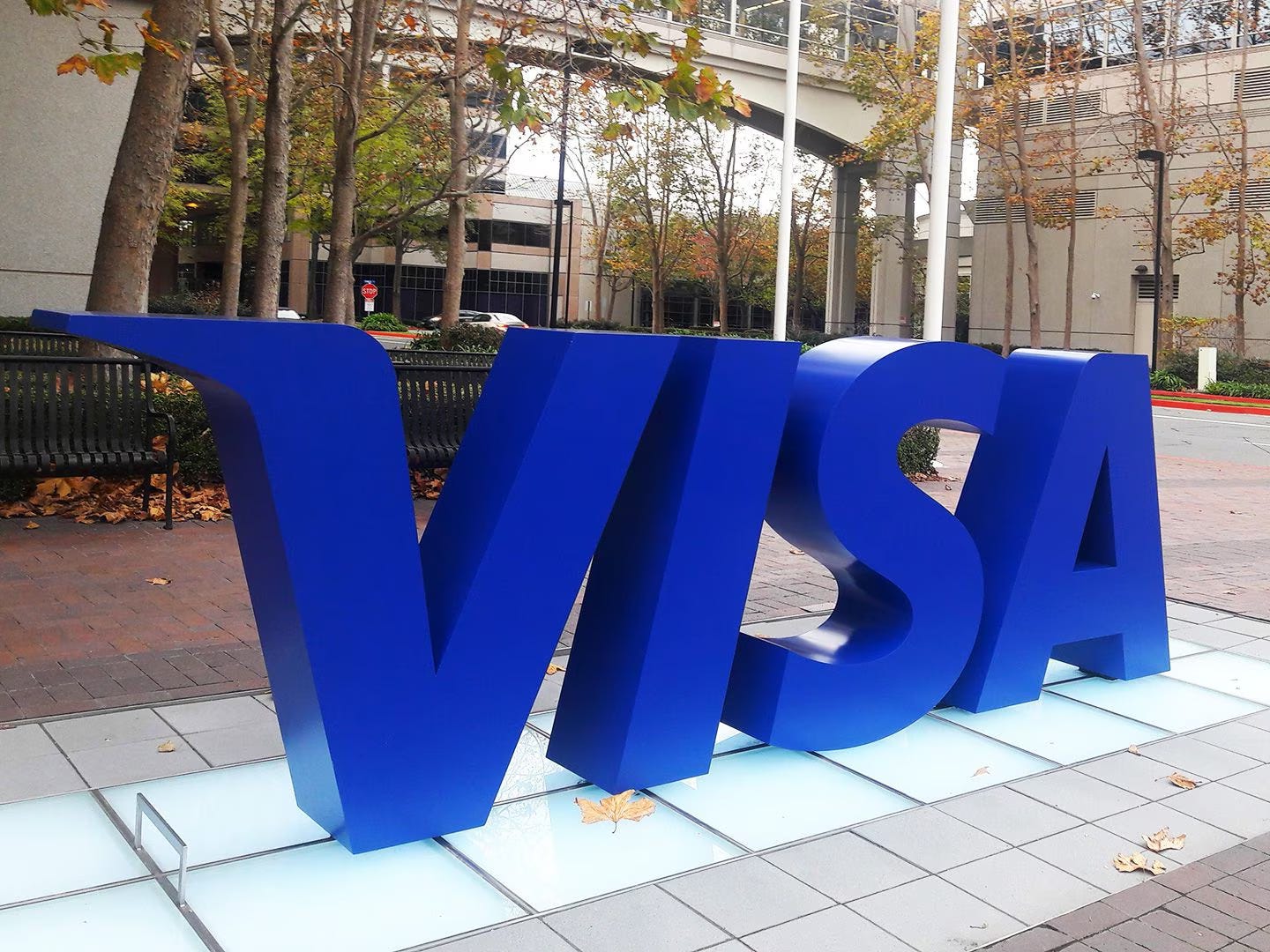DeFi Dive — Visa's transaction-free payment solution on Ethereum
What is Account Abstraction and how it can drastically improve user experience in crypto.
Welcome to DeFi Dive! The Sunday edition that takes a closer look at one of the defining topics of the sector.
The phrase "Be your own bank" has been widely promoted among crypto enthusiasts, but it is important to acknowledge that this concept is far from user-friendly. In reality, it can be highly technical, complex, and even a single misstep can result in the loss of all your funds. Blockchain payment networks and dApps (decentralized applications) struggle to provide the same level of flexibility and frictionless experience found in mainstream digital payment systems and apps. Consequently, introducing new users to the world of crypto requires them to grasp at least a basic understanding of concepts such as blockchain, wallets, private keys, and smart contracts.
Imagine a scenario where users could leverage the advantages of blockchain technology without even needing to comprehend its inner workings, much like how we use the internet today, where only a minority truly comprehend its underlying mechanisms. This is what account abstraction with ERC-4337 may bring to crypto.
In today’s DeFi Dive:
Understanding Account Abstraction in simple terms
What the hell is Visa doin’ (and why)
Other smart stuff smart wallets can do
Unraveling Account Abstraction, enabled by ERC-4337
Proposed by Vitalik Buterin in 2021 and subsequently refined and approved by the Ethereum governance, the EIP-4337 (Ethereum Improvement Proposal) was deployed on the Ethereum mainnet in March of this year. The EIP-4337 featuring Account Abstraction aims to address a simple issue: the lack of user-friendliness in crypto wallets.
To better understand the improvement it brings, let’s take a step back and examine the types of contracts Ethereum uses today. There are two primary types:
EOAs (Externally Owned Accounts) - considered “normal” Ethereum accounts/wallets that users access through apps like Metamask. They are controlled by private keys, enabling users to transact and interact with Ethereum. However, EOAs lack programmability, making them simple yet inflexible.
CAs (Contract Accounts) - also known as smart contracts. They have the ability to execute code and perform various functions. However, unlike EOAs, CAs are unable to initiate transactions independently. Instead, transactions must originate from EOAs and contain the user’s signature.
We’ve had the smart contracts, but we’ve been missing the smart wallets!
Account Abstraction makes wallets “smart” by bringing the programmability of smart contracts and their functionalities to traditional wallets. The outcome is a programmable smart contract account that serves as a regular wallet, which consequently also allows the smart contracts to operate independently. To achieve this the ERC-4337 wallet relies on the so-called bundlers (entities similar to validators) which take the operations, execute them and deliver the outcome back to the user’s wallet.
That’s a wrap. If you want to dig even deeper, detailed technical information on EIP-4337 can be found here.
Now, let’s delve into the exciting part.
Visa’s experiment with Account Abstraction
Visa, the global payment giant, has recently taken a keen interest in Account Abstraction. They have extensively explored this concept, as seen in their report here, as well as discussed in detailed articles like this and this. Visa experimented on Ethereum’s Goerli testnet with the aim of creating a transaction-free payment solution. Their approach involved the creation of two smart contracts referred to as "Paymasters," which leverage the power of account abstraction. These contracts have a primary objective of simplifying user interactions with the Ethereum network by eliminating the requirement for end-users to hold ether (ETH) for transaction fee payments. Instead, Visa enables users to make payments using any token, ideally USDC (a dollar stablecoin), as Visa has been settling USDC on the Ethereum network since 2021.

In essence, this means that users can utilize USDC without needing to know anything about Ethereum or why transaction fees are paid in Ether, which greatly improves the user experience of on-chain payments. They could also enable users to engage in gasless transactions, as demonstrated below:

Moreover, Visa has explored the possibility of wallets making auto-payments. This functionality allows wallets to transact autonomously, eliminating the need for the user to sign each transaction. This feature is especially useful for recurring payments like subscriptions.
Account abstraction brings much more
Beyond the use cases like those that Visa has in mind, smart wallets bring numerous additional benefits and possibilities such as:
Social recovery: simplifying private key storage by enabling password recovery through trusted parties (friends, relatives, lawyers) or multi-factor authentication.
Spending limits: setting daily or monthly spending limits for wallets;
Signature-free transactions: establishing thresholds where transactions only require validation through phone, with hardware wallet signatures necessary for higher amounts;
Emergency account freezing, whitelisting, and aggregated signatures.
Smart wallets can be particularly valuable in the world of Web 3.0 social networks and on-chain gaming. Instead of signing transactions frequently while interacting with dApps, Account Abstraction allows for sessions without the need for continuous transaction signing.
ERC-4337 establishes the technical foundation for innovative and customizable crypto wallets, enabling extensive upgradeability. The possibilities really depend just on what developers can create.
Smart wallets have the potential to revolutionize the interface between crypto and the end-users. It simplifies their usage, it enhances security by mitigating human errors and ultimately leads to a smoother and more user-friendly experience.
Thank you for reading! If you found this Dive edition valuable, why not share it with a friend? Forward this email—it's the best gift you can give us!
See you next Thursday with the weekly news!
🐳 Feeling generous? Fund this newsletter and the degens behind it:
0x6480474717045771Ecf6561331458dcbA6229C75 (EVM)
1AXaP7Qe9cGzW6oYYs5xLfEgGHb3UppHjn (BTC)
Powered by Unibo Fintech Society.
Disclosure: Authors may own crypto assets named in this newsletter. Stay on-chain is meant for informational purposes only. It is not meant to serve as investment advice. Please consult your investment, tax, or legal advisor before making investment decisions.



